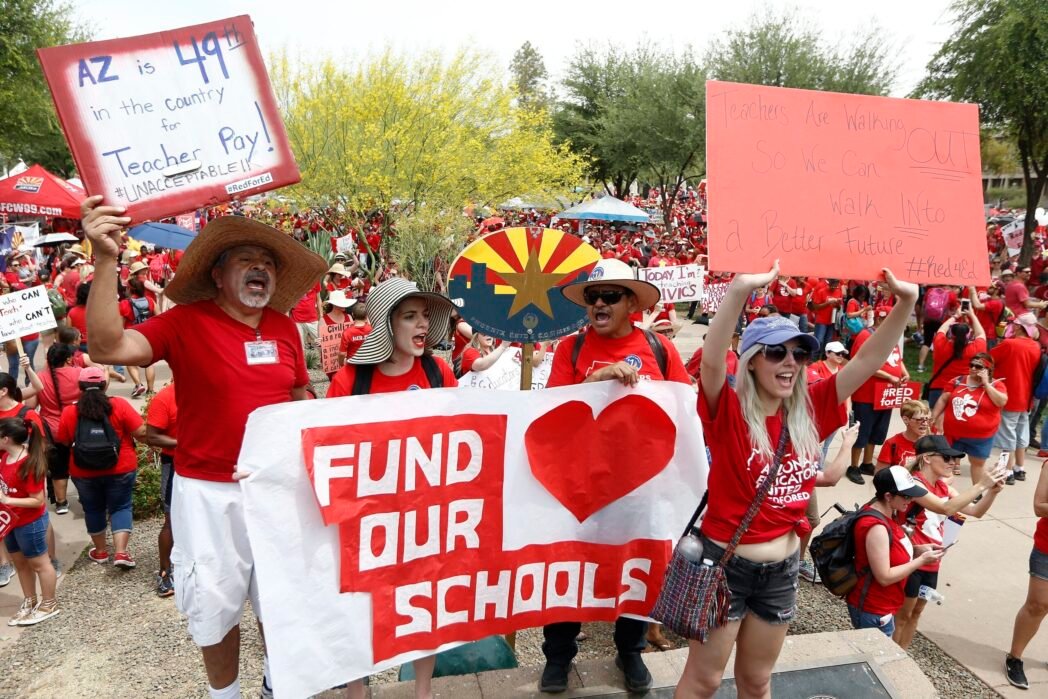budget
Dispute Over School Choice Funding Casts Shadow on Teacher Pay Ballot Measure

Efforts to raise teacher pay in Arizona have encountered significant roadblocks, primarily due to Republican demands for expanded school voucher legislation. The push for a special election to facilitate this teacher compensation plan has stalled, with GOP lawmakers insisting on a constitutional amendment that guarantees “school choice,” which includes vouchers for private schooling.
Governor Katie Hobbs has firmly rejected this linkage, calling it a non-starter. While lawmakers can technically place issues before voters, they face legal constraints on implementing necessary statutory changes, which can only occur during regularly scheduled elections. Without the governor’s agreement to sign relevant legislation, a vote would not occur until November 2026, delaying essential funding for classrooms until the next year.
The urgency for a budget solution takes precedence. Lawmakers have less than 40 days to formulate a new budget ahead of the fiscal year starting July 1, and the imminent deadline complicates any attempts to craft a teacher pay plan. Observers note that some Republicans are planning to leave early in June, further jeopardizing the majority needed for budget approval.
Senator J.D. Mesnard noted the impracticality of reaching a consensus on the education plan in time for a special election, suggesting that delaying the vote until a regular election could save the state $15 million. However, whether the plan would perform better as a standalone issue or be lost amid other ballot items remains uncertain.
The previous success of Proposition 123 in 2016, aimed at providing additional educational funds, raises questions for lawmakers, especially since the authorization for its funding ends this year. Nonetheless, the state’s basic budget has absorbed these extra funds, ensuring schools won’t incur losses.
Debate persists regarding how to allocate any additional funds. Republicans propose direct $4,000 raises exclusively for teachers, while Governor Hobbs seeks a more flexible approach, allowing spending on various educational needs, including support staff salaries and school safety. This divergence complicates negotiations, as Republican leaders express concerns over prioritizing teacher retention and recruitment.
The inclusion of voucher provisions has become a major sticking point, with Hobbs having previously advocated for rolling back such programs. She criticized Republican demands as detrimental to public schools and underscored the backlash in rural regions where citizens feel their tax dollars support affluent families’ private schooling choices.
As discussions stall, some lawmakers speculate whether the package—if successfully placed on the ballot—will gain voter approval given its connections to voucher initiatives. Voter turnout dynamics also weigh heavily on strategic planning. Past measures have shown varying levels of support based on electoral participation.
With the deadline for a special election now passed, focus shifts to the necessity of forming a budget. Governor Hobbs expressed disappointment over the delay, reiterating that immediate investment in public schools is urgently needed. If negotiations stall, a combined plan may eventually face legal scrutiny under constitutional provisions prohibiting multiple amendments on a single ballot.
As the situation evolves, Arizona’s educators and students await clarity amid the ongoing political debate.

















